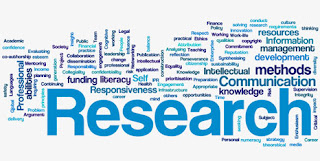Letting Your Creative Juices Flow
After seeing the titles of this week's reading selections I was excited to read them in preparation for Hope's presentation. We are smack dab in the middle of writing our proposals and this is extremely rigorous work. It was a welcome break to think with the other side of my brain for a moment.
The Lit Review is every bit as challenging as Dr. Zamora told us it would be. I think it is because while we are considering the works that will help us with our thesis we have so many angles and lens to look through. And it is truly hard not to give every text a close read from start to finish. Knowing and understanding what you need and why this bit of information is useful and necessary to you is the tough. It requires some serious analyzing every step of the way. I must admit that I really do appreciate the process and I am learning so much, as cliche as it may sound from doing this work.
via GIPHY
This first excerpt I read was from the book titled, On Writing Well by William Zinsser. Zinsser pointed out some specific writing moves to help writers and journalists write about people. We read Chapter 12 Writing About People with the purpose of interviewing skills and techniques. Many of the strategies he talked about made sense to me as a reader. I love reading non-fiction books about celebrities and politicians and usually those books are penned by someone else. Yet, you can still hear the voice of the person telling the story.
The journalist that interviewed former First Lady Jackie Kennedy was able to capture this in a novel I recently completed titled Conversations on the Life of John F. Kennedy. Interviews of Jackie Kennedy were recorded and written in this book. While reading this book I felt as Jackie Kennedy was telling me the story. At no point while reading did the "writer step in" and make the experience seem "secondhand." I was there in those moments right with the First Lady.
Zinsser writes, "[The persons] words will always be better than your words" (p100). This is so true and hard to do as a writer. Writers that are able to capture this have better interviews and pieces written on their particular subject. As a reader of these types of works, I appreciate those writers that are able to do this well. Looking at this from the lens of a writer I know that there takes a lot of skill and preparation to this correctly. You have to do your research as Zinsser points out. "Never go into an interview without doing whatever homework you can...You will be resented if you insure about facts that could have been learned in advance" (105). So often I hear this done in interviews and it makes me cringe. I want to read about something that I don't know and I can't simply Google it. This is kind of hard in today's world but still possible.
It was helpful to learn that you as the writer still hold the power to tell the story. You have to weave the words of your subject together and bring the most informative and/or interesting product to the masses. Reader's need or "deserve" a "tight package." I can appreciate this as a reader and I understand the difficulty of it as a writer. But Zinsser does offer some points one of which I thoughts was the most helpful was when he said, "Don't become a prisoner of your quotes-- so lulled by how wonderful they sound that you don't stop to analyze them. Never let anything go out into the world that you don't understand" (111). I felt that this showed me that even when you are writing non-fiction you are still telling a story. You still have to make smart moves and choices as writer for the final product or message you are constructing.
Right now I am reading Barack Obama's book Dreams From My Father. Former President Obama wrote this so it is a narrative. The second article we read this week was titled, Writing a Narrative by WW Norton. All of the rules they laid out and structures they set for writing a good narrative can be found in this book. You can hear his voice spoken through each word on the page. The point of view is consistent, and he sets the tone right from the start as to why he is writing this story. With that purpose he takes on a ride and journey where he explores himself and his father through the eyes of the people that knew him. As I read this I thought about this book the entire time. Given Former President Obama's Ivy League education he uses more words and anecdotes to tell his story but premise is still the same. If I were ever going to write a narrative I would use this novel as one of my mentor texts.






Comments
Post a Comment